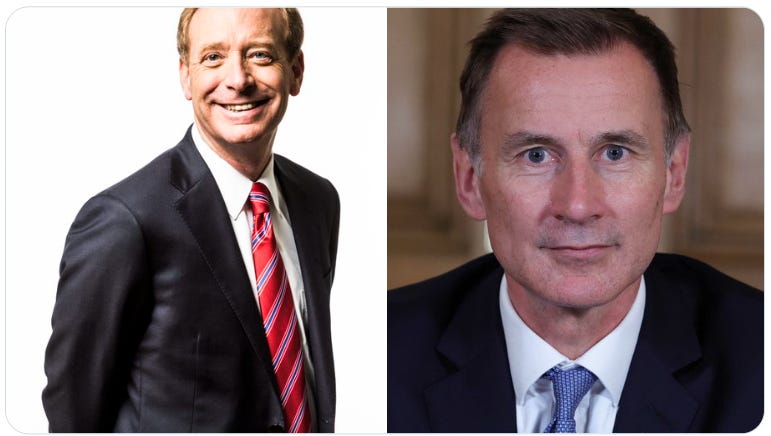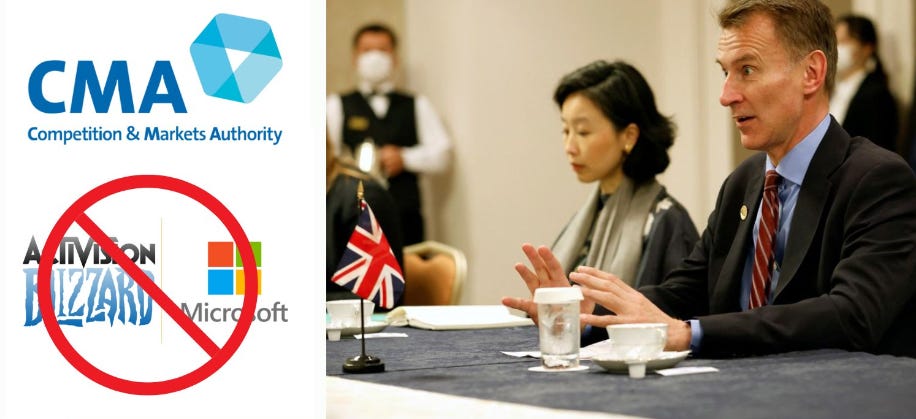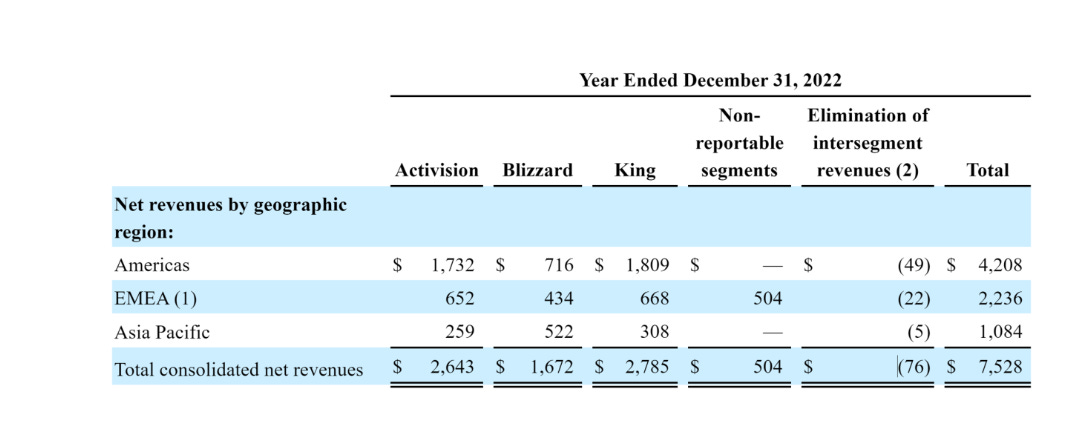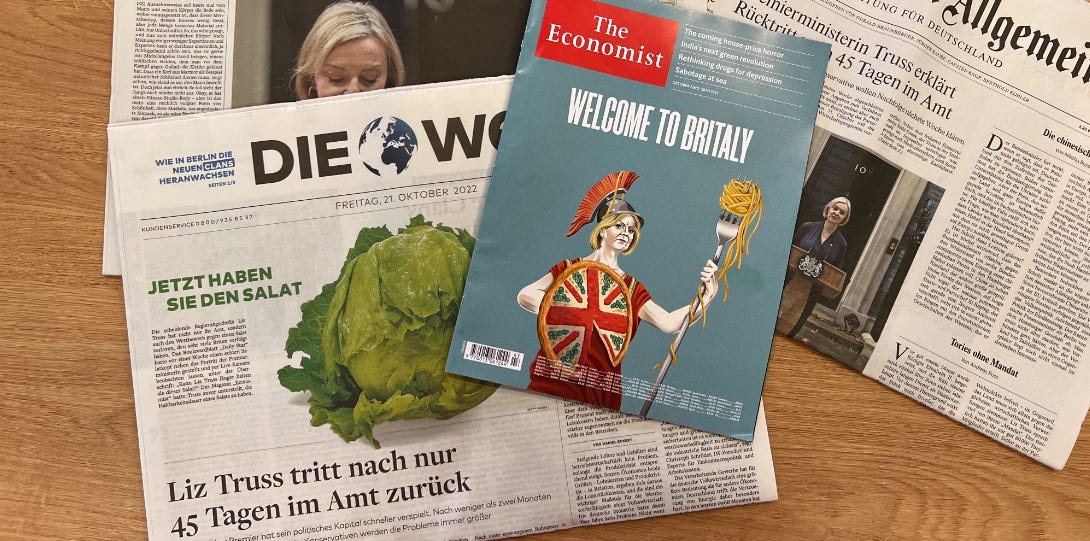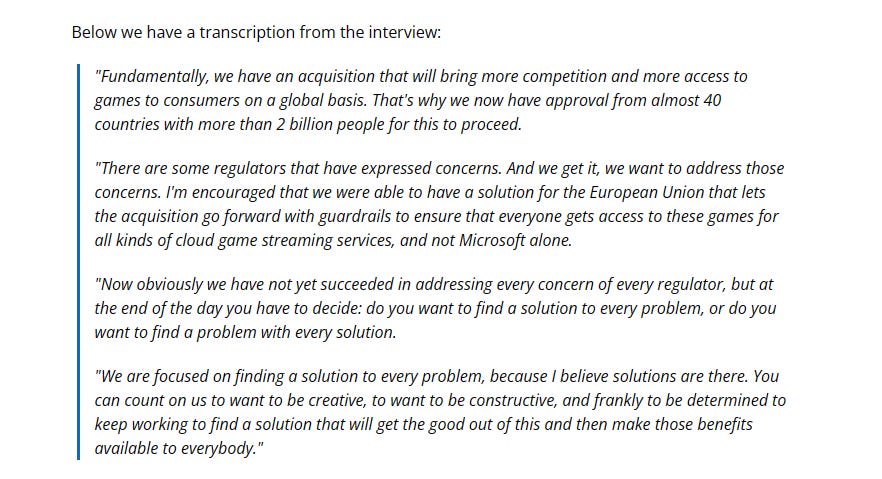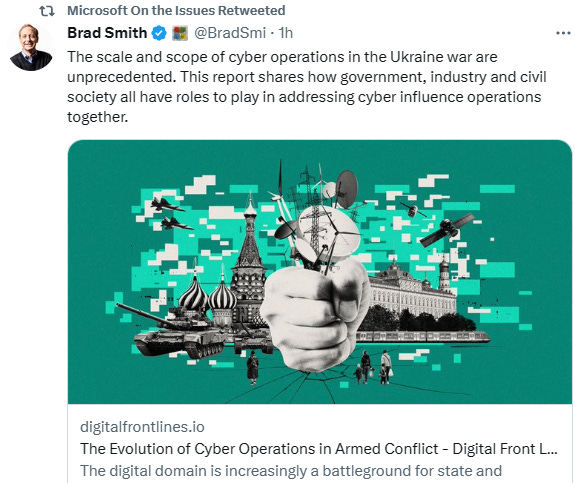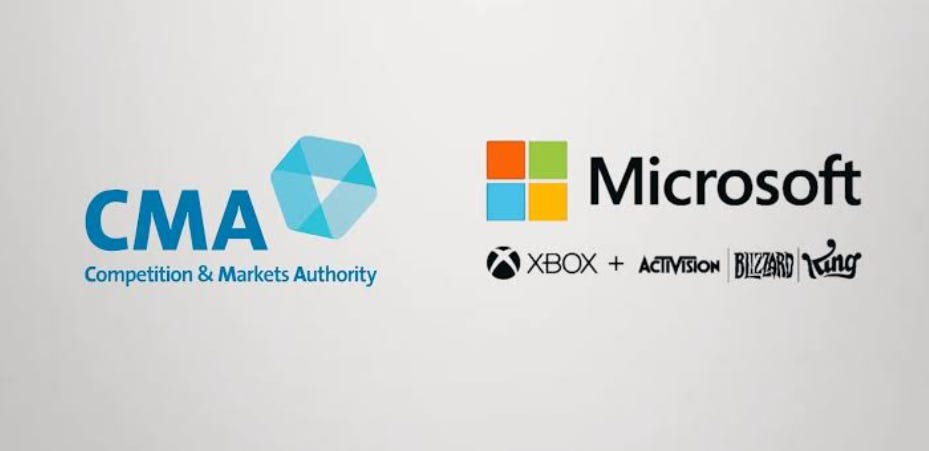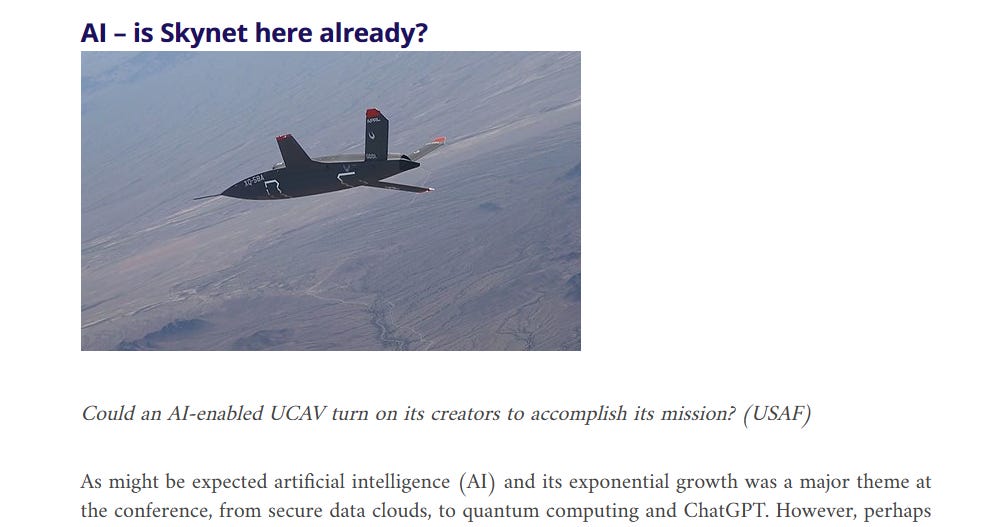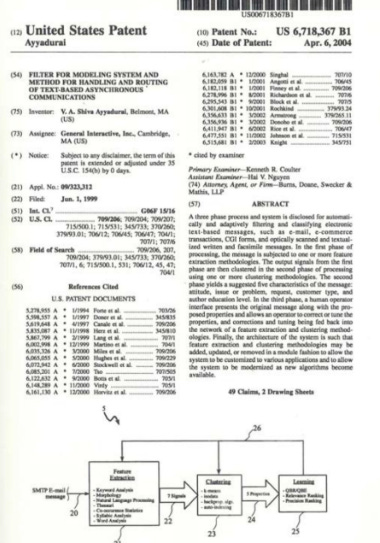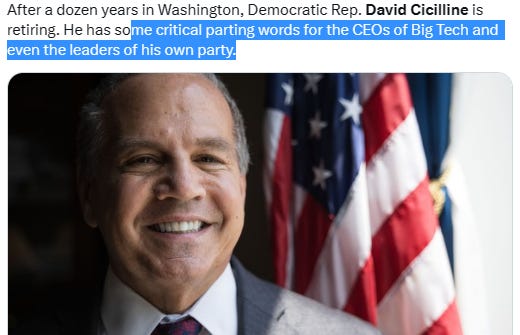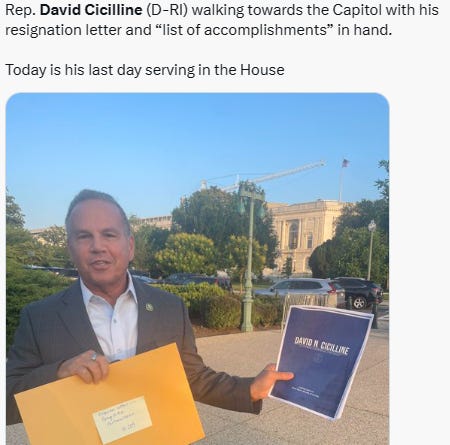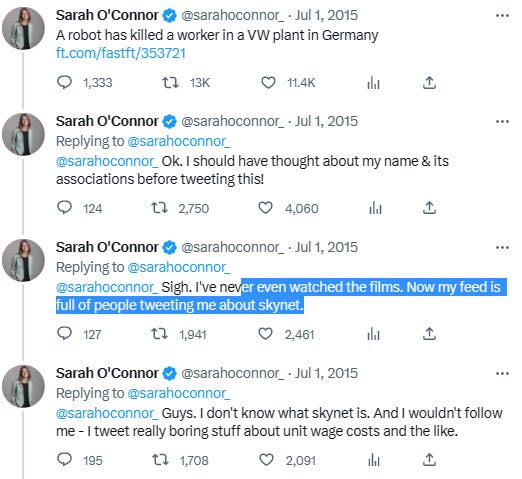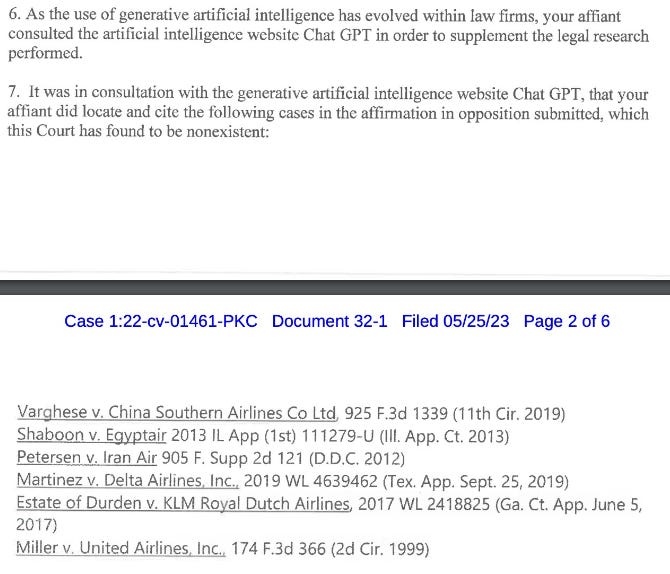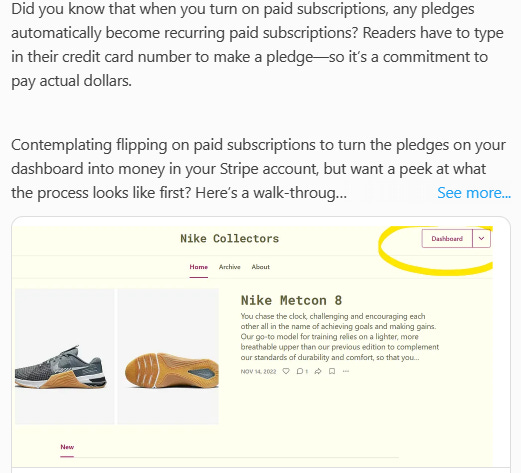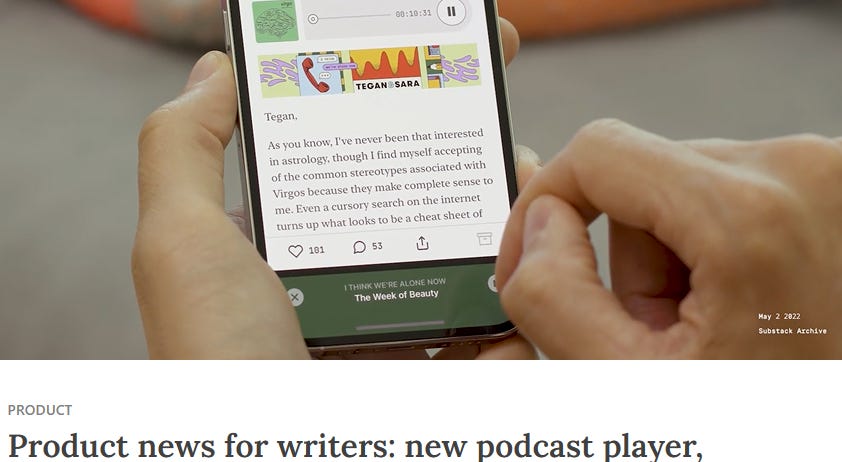Battle in DC (AI), in London (Merger & Acquisition): Amid plan meeting Hunt - Smith next week, Microsoft considering “extreme” option to withdraw Activision from the UK.
(Writer) Prada loyal player of Counter Strike / CS (2002-2006), nearly selected for Indonesia, compete in ASEAN. CS, also Ragnarok made Microsoft racked 2-digit billion rupiah (massive rent-computer)
UK Minister Jeremy Richard Streynsham Hunt wasn't happy with Microsoft boss’ Today Program interview saying the UK’s a bad place to do business. The UK government is always affronted when met with truth. Microsoft President Bradford “Brad” Lee Smith will meet with UK Chancellor Jeremy Hunt next week to vent his frustration at the CMA’s Activision Blizzard deal block. Microsoft is also considering the “extreme” option to withdraw Activision from the UK. Amazing how Microsoft just up and openly are blackmailing the UK government. Bigger and more bigger debatable about the CMAs decision (maybe) was wrong, but how on earth can a foreign company blackmail a government with impunity.
The fact that goofy Microsoft are willing to go this far just says it all about what their actual intentions are (using ABK / Activision Blizzard King against the entire business) if it's all said and done. There's no leverage on their end whatsoever. No Activision Blizzard games at all in the UK would be an absolute nightmare for those who live in that region. Also would put enormous pressure on the CMA (& VPN usage would be through the roof).
Can't even imagine a new Call of Duty NOT releasing at all in the UK, the 2nd biggest market. Wild.
I was lured, inspired by someone writer, his post in LinkedIn months ago, “Currently after a routine daily writing newsletter in the last 10 years, my subscriber reaches 100,000. Maybe one of my subscribers is your boss.”
To get the ones who really appreciate your writing, and now prominent people appreciate my writing, priceless feeling.
I love gaming although I haven't played esports since 2010. After I get followed / subscribed by (literally) prominent AI and prominent Chief Product and Technology of mammoth global media (both: Sir, thank you so much), I try crafting more / better writing. This is the longform of Seattle (Microsoft) - London saga.
May 31, 2023, interview with CNN’s Julia Chatterley, Brad Smith says Microsoft will be determined and creative in its efforts to get merger clearance.
Smith reiterates that Microsoft is open to finding solutions with worldwide regulators.
Jeremy Hunt, UK Chancellor of the Exchequer, asked the CMA to Unlock Microsoft's Acquisition of Activision Blizzard, "I wouldn't want to interfere with that (the CMA's authority), but I think it's important that all of our regulators understand their broader responsibilities for economic growth."
Microsoft's 2nd biggest console sales were in the UK because xbox hasn't branched out that far they better give SONY an amazing deal because without them cod games dead on arrival pc players won't even want to play with other pc players not good for clips. Microsoft-Activision merger has been cleared in 10 jurisdictions so far.
The whole point of the CMA is that it’s made up of civil servants to attempt to minimise political interference. If Microsoft were truly considering the abandonment of 40 million players in the UK — many of whom play the likes of Call of Duty — that would not only be a significant loss of revenue, but it would surely harm the the relationship with those consumers who game on their platform. . That's eventually a bad business for sony too since a lot of people play Call of Duty on playstation, so if they can't buy the game then what?
Out of the handful of worldwide regions, the European Union's approval carries the most weight. EU regulators had identified two key areas of potential anti-competitive effects from the merger, but those worries were satisfied when Microsoft agreed to make certain adjustments in its post-merger business plan.
This shows that Microsoft is willing to work with regulators to find a solution to get the deal passed. Microsoft clearly wants Activision Blizzard King's (ABK) mighty billion-dollar empire to supplement the Xbox brand and its grand, but unclear, plans at creating a universal video game platform that connects and sells games on mobile, PC, and console.
(When I am typing this note, Bradford “Brad” Lee Smith in same minute posted it)
There's just two regulators that are standing in the way: The FTC in the United States, and the CMA in the United Kingdom. Of these countries, Activision-Blizzard games are significant contributors to earnings and make up a strong market share; Activision filings show that it makes 49% of its total 2022 net revenues from the U.S. (about $4.2 billion), and 11% from the U.K. ($828 million), so Activision carries more weight in these areas than any of the jurisdictions that have approved the merger, with the great exception of the EMEA region (Europe, Middle East, and Africa), which generated $1.08 billion in 2022.
Shortly after the deal was blocked, both Microsoft and Activision threatened to pull out of their UK investments. "One of the reasons companies like Microsoft and Google want to invest in the UK is because we have independent regulators who are not controlled by politicians," Jeremy Hunt told a business conference.
"But British regulators must understand the need to promote growth," added the minister.
The European Union authorized the deal on Monday (15/05), accepting a virtually identical set of remedies presented by Microsoft that the CMA had rejected in its final decision in April
CMA Chief Executive Sarah Cardell told lawmakers at a public hearing that she stood by the ruling, saying the regulator "wanted to create the best conditions for competition that would allow companies large and small to thrive."
"I don't think we're operating in a hostile environment," she said.
"I would not want to undermine that at all, but I do think it's important all our regulators understand their wider responsibilities for economic growth." Hunt says.
In a recent interview with CNN's First Move's Julia Chatterley, Microsoft President Brad Smith reiterates his previous points that the company wants to work with regulators to find a way to pass the merger.
Smith says that we can count on Microsoft "being creative," which was certainly the case during its press conference in Brussels where the company took the FTC's market definition--a curious High-Performance Console Relevant Market definition that excludes Nintendo--to present skewed data that technically fit with the FTC's definition, which narrowed the video games industry's console players to just PlayStation vs Xbox.
Britain's antitrust regulator the Competition and Markets Authority (CMA) caused shockwaves in April when it blocked Microsoft's acquisition of the games company that makes "Call of Duty" because it said it would hit competition in the nascent cloud gaming market.
Both companies reacted furiously. Microsoft said it would appeal.
Microsoft's president Brad Smith said the decision had "shaken confidence" in Britain as a destination for tech businesses, adding that the government needed to "look hard" at the role of CMA and the message it was sending to the world.
In January 2017, Brad Smith made a bold prediction. Speaking on a panel at the Davos World Economic Forum (the same place-moment Biden met Xi Jinping), he said governments would be talking about how to regulate artificial intelligence in about five years.
Another executive bristled at the idea, telling Smith no one could know the future.
The Center for Strategic and International Studies (CSIS) in May 2023 announced the appointment of Brad Smith, vice chair and president of Microsoft, to the CSIS Board of Trustees.
The prophecy by Brad Smith was right. As if on schedule, Smith (May 24th, 2023) morning convened a group of government officials, members of Congress and influential policy experts for a speech on a debate he’s long been anticipating. Smith unveiled his “blueprint for public governance of AI” at Planet Word, a language arts museum in Washington that he called a “poetic” venue for a conversation about AI.
Rapid advances in AI and the surging popularity of chatbots such as ChatGPT have moved lawmakers across the globe to grapple with new AI risks.
Microsoft’s $10 billion investment in ChatGPT’s parent company, OpenAI, has thrust Smith firmly into the center of this frenzy. Smith is drawing on years of preparation for the moment. He has discussed AI ethics with leaders ranging from the Biden administration to the Vatican, where Pope Francis warned Smith to “keep your humanity.” He consulted recently with Sen. Majority Leader Charles E. Schumer, who has been developing a framework to regulate artificial intelligence. Smith shared Microsoft’s AI regulatory proposals with the New York Democrat, who has “pushed him to think harder in some areas,” he said in an interview with The Washington Post.
His policy wisdom is aiding others in the industry, including OpenAI CEO Sam Altman, who consulted with Smith as he prepared policy proposals discussed in his recent congressional testimony. Altman called Smith a “positive force” willing to provide guidance on short notice — even to naive ideas.
“In the nicest, most patient way possible, he’ll say ‘That’s not the best idea for these reasons,’” Altman said. “‘Here’s 17 better ideas.’”
But it’s unclear whether Smith will be able to sway wary lawmakers amid a flurry of burgeoning efforts to regulate AI — a technology he compares in potential to the printing press, but one that he says holds cataclysmic risks.
“History would say if you go too far to slow the adoption of technology you can hold your society back,” Smith said. “If you let technology go forward without any guardrails and you throw responsibility and the rule of law to the wind, you will likely pay a price that’s far in excess of what you want.”
In Thursday’s speech (May 24th, 2023), Smith endorsed creating a new government agency to oversee AI development, and creating “safety brakes” to rein in AI that controls critical infrastructure, including the electrical grid, water system, and city traffic flows.
His call for tighter regulations on a technology that could define his company’s future may appear counterintuitive. But it’s part of Smith’s well-worn playbook, which has bolstered his reputation as the tech industry’s de facto ambassador to Washington.
Smith has spent years asking for legislation, establishing himself as a rare tech executive whom policymakers view as trustworthy and proactive. He’s advocated for stricter privacy legislation, limits on facial recognition and tougher consequences on social media businesses — policies that at times benefit Microsoft and harm its Big Tech rivals.
Other companies appear to be taking notes. In the past month, OpenAI and Google — one of Microsoft’s top competitors — unveiled their own visions for the future of AI regulation.
But Microsoft’s embrace of ChatGPT catapults the 48-year-old company, along with Brad Smith, to the center of a new Washington maelstrom. He’s also facing battles on multiple fronts in the United States and abroad as he tries to close the company’s largest ever acquisition, that of gaming giant Activision Blizzard (as detailed in first paragraph).
The debate marks a career-defining test of whether Microsoft’s success in Washington can be attributed to Smith’s political acumen — or the company’s distance from the most radioactive tech policy issues.
Smith has a reputation as the tech industry’s de facto ambassador to Washington.
The proactive calls for regulation are the result of a strategy that Smith first proposed more than two decades ago. When he interviewed for Microsoft’s top legal and policy job in late 2001, he presented a single slide to the executives with one message: It’s time to make peace.
For Microsoft, which had developed a reputation as a corporate bully, the proposition marked a sea change. Once Smith secured the top job, he settled dozens of cases with governments and companies that had charged Microsoft with alleged anti competitive tactics.
Smith found ways to ingratiate himself with lawmakers as a partner rather than an opponent, using hard-won lessons from Microsoft’s brutal antitrust battles in the 1990s, when the company engaged in drawn out legal battles over accusations it wielded a monopoly in personal computers.
The pivot paid off. Four years ago, as antitrust scrutiny was building in Silicon Valley, Microsoft wasn’t a target. Smith instead served as a critical witness, helping lawmakers build the case that Facebook, Apple, Amazon and Google engaged in anti-competitive, monopoly-style tactics to build their dominance, said Rep. David Nicola Cicilline (D-R.I.), who served as the chair of the House Judiciary antitrust panel that led the probe.
The resignation letter of 7th term Rhode Island Democratic Rep. David Cicilline was read in the House following the debt bill vote. He's resigning effective tonight to serve as Rhode Island Foundation President & CEO beginning June 1st.
Smith recognized Microsoft was a “better company, a more innovative company” because of its clashes with Washington, Cicilline said. Smith also proactively adopted some policies lawmakers proposed, which other Silicon Valley companies aggressively lobbied against, he added.
“He provided a lot of wisdom and was a very responsible tech leader, quite different from the leadership at the other companies that were investigated,” Cicilline said.
In particular, Smith has deployed this conciliatory model in areas where Microsoft has far less to lose than its Big Tech competitors.
In 2018, Smith called for policies that would require the government to obtain a warrant to use facial recognition, as competitors such as Amazon aggressively pursued government facial recognition contracts. In 2019, he criticized Facebook for the impact of foreign influence on its platform during the 2016 elections — an issue Microsoft’s business-oriented social network, LinkedIn, largely didn’t confront. He has said that Section 230, a key law that social media companies use as a shield from lawsuits, had outlived its utility.
“Having engaged with executives across a number of sectors over the years, I’ve found Brad to be thoughtful, proactive and honest, particularly in an industry prone to obfuscation,” said Sen. Mark R. Warner (D-Va.).
But as Microsoft finds itself in Washington’s sights for the first time in decades, Smith’s vision is being newly tested. Despite a global charm offensive and a number of concessions intended to promote competition in gaming, both the U.K. competition authority and the Federal Trade Commission in the United States have recently sued to block Microsoft’s $69 billion acquisition of Activision Blizzard (as detailed in first paragraph).
Smith signaled a new tone the day the FTC decision came down.
“While we believe in giving peace a chance, we have complete confidence in our case and welcome the opportunity to present our case in court,” Smith said in a statement. The company has appealed both the U.K. and FTC decisions. Smith said he continues to look for opportunities where he can find common ground with regulators who opposed the deal.
Smith, as lawyer too (was work in Law firm Covington & Burling LLP), says he views AI as the most important policy issue of a career that has spanned policy debates about surveillance, intellectual property, privacy and more. (Jesse Dittmar for The Washington Post)
When Microsoft was gearing up for regulatory scrutiny of the Activision Blizzard deal, Smith traveled to Washington to talk about how the company was “adapting ahead of regulation.” He announced Microsoft would adopt new rules to boost competition in its app stores and endorsed several legislative proposals that would force other companies to follow suit.
Since ChatGPT’s release in November of 2022, speculation has grown over whether or not the role of a data analyst could eventually be replaced by generative AI. Maybe ChatGPT will never ever be replaced, but it will redefine the role of Data Scientist. Moving too (big, giant) leap, too fast on AI could be terrible for humanity.
The public’s attention on a far fetched scenario that doesn’t require much change to their business models. Addressing the immediate impacts of AI on labor, privacy, or the environment is costly. Protecting against AI somehow “waking up” is not. (Also) convince everyone that AI is very, very powerful like what Sarah O’Connor afraid. So powerful that it could threaten humanity! They want you to think we’ve split the atom again, when in fact they’re using human training data to guess words or pixels or sounds.
On Thursday, he once again tried to stay a step ahead of worried Washington policymakers. Smith delivered Thursday’s address in the style of a tech company demo day, where executives theatrically unveil new products. There were more than half a dozen lawmakers in the audience, including Rep. Ted Lieu (D-Calif.), who has used his computer science background to position himself as a leading AI policymaker, and Rep. Ken Buck (R-Colo.), who co-chaired the antitrust investigation into tech companies with Cicilline.
Smith proposed that the Biden administration could swiftly promote responsible AI development by passing an executive order requiring companies selling AI software to the government to abide by risk management rules developed by the National Institute of Standards and Technology, a federal laboratory that develops standards for new technology. (Such an order could favor Microsoft in government contracts, as the company promised the White House that it would implement the rules over the summer.)
He also called for regulation that would address multiple levels of the “tech stack,” the layers of technology ranging from data center infrastructure to applications enabling AI models to function. Smith and his Microsoft colleagues have long made education a key part of their policy strategy, and Smith has been focused on educating lawmakers, members of the Biden administration and their staff about how the AI tech stack works in recent one-on-one meetings, said Natasha Crampton, the company’s chief of Responsible AI, in an interview.
Smith, who has worked at Microsoft for nearly 30 years, said he views AI as the most important policy issue of a career that has spanned policy debates about surveillance, intellectual property, privacy and more.
But he is clear-eyed that more political obstacles lie ahead for Microsoft, saying in an interview that “life is more challenging” in the AI space, as many legislatures around the world simultaneously consider new tech regulations, including on artificial intelligence.
“We’re dealing with questions that don’t yet have answers,” Smith said. “So you have to expect that life is going to be more complicated.”
*Prada ungated/no paywall every notes-but thank you for anyone open initiative pledge to me
(Promoting to more engage in Substack) Seamless to listen to your favorite podcasts on Substack. You can buy a better headset to listen to a podcast here (GST DE352306207). Listeners on Apple Podcasts, Spotify, Overcast, or Pocket Casts simultaneously. podcasting can transform more of a conversation. Invite listeners to weigh in on episodes directly with you and with each other through discussion threads. At Substack, the process is to build with writers. Podcasts are an amazing feature of the Substack. I wish it had a feature to read the words we have written down without us having to do the speaking.




